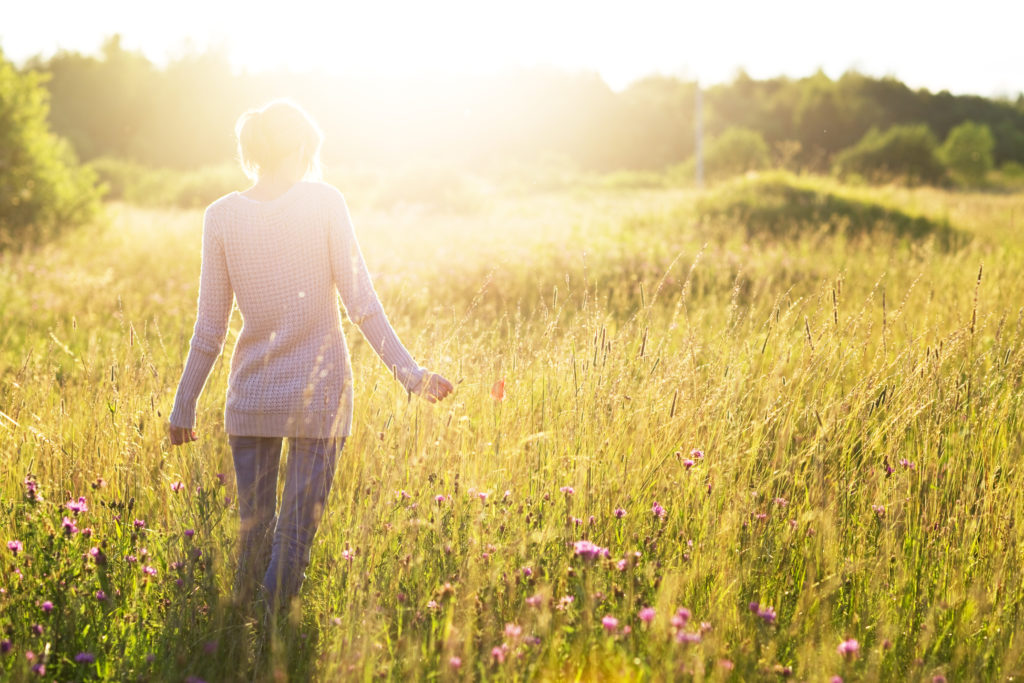
After long periods in isolation and behind closed doors due to the pandemic, you too may have felt a new appreciation for getting back to nature.
Even just for short periods each day, the positive impact of fresh air, daylight, natural greenery and the peaceful and relaxing sounds of nature, have shown to have significant affects on improving people’s wellbeing.
And when you’re required to stay home for long periods, a small allowance of time at a local green space, can become a welcome daily reward for helping to keep others, and ourselves, safe.
Whether it’s visiting a nearby park, a local beauty spot, taking a countryside hike or finding a quiet green space we haven’t enjoyed for a while, with longer days and fewer restrictions on the horizon, there is plenty we can do to give our mental health a natural boost.
Below we look at five of the most popular and easiest ways you can connect with nature and how it can improve your wellbeing.
1. Step outside for a walk
When it comes to dealing with the stress of the pandemic, most people in the UK said their top method of maintaining their mental health was by going outside for a walk.
Research by the Mental Health Foundation in February, revealed 59% of people said a walk outside was their favourite way of coping with the stress of the pandemic since April last year.
It’s easy to see why. Walking is low impact, requires no equipment or instruction, is free, can be done in your own time, and in almost any location.
People who walk regularly tend to do so because it gives them a greater sense of wellbeing.
Plus, you don’t need to complete a marathon to gain these benefits – just a simple 30 minutes each day can have a measurable impact.
2. Find your favourite green space
Being able to visit green spaces was also a major coping method for 42% of the population, according to the Mental Health Foundation study.
Another study (i) found people who spent at least two hours in nature per week were consistently more likely to report higher levels of health and wellbeing compared to people who spent less time in nature.
Activities such as forest bathing and green programmes specifically for people with poor mental health have also increased in popularity in recent years.
While the impact of COVID-19 has highlighted an inequality in access to public green spaces in poorer communities across the UK, there are simple ways to find your nearest green space, including those if you have accessibility requirements.
Search Google for ‘green spaces near me’ will often highlight your local parks and public spaces, as well as visiting your local council’s website.
If you want to explore, these websites may also be useful:

3. Display nature scenes
It’s no surprise documentaries of the natural world, whether it’s David Attenborough’s wonderous look at planet Earth or Bear Grylls’ exploits in the great outdoors, remain so popular.
Simply looking at images of nature scenes, watching nature documentaries or nature videos has been shown to reduce stress levels in several studies.
(Though admittedly Bear Grylls’ survival-based shows may not be relaxing for everyone).
Research by Kim et al. investigated the subjective responses to scenic rural picture views compared to urban imagery.
Responses were assessed from completed questionnaires for three different levels: peaceful, accustomed, and suffocated.
The rural scenery views showed levels of ‘peaceful’ for 27 subjects (90%), ‘accustomed’ for two subjects (6.7%) and ‘suffocated’ for one subject (3.3%).
Meanwhile the urban scenery views showed levels of ‘peaceful’ for zero subjects (0%), ‘suffocated’ for 16 subjects (53.3%) and ‘accustomed’ for 14 subjects (46.7%).
Try adding a favourite landscape image to your computer or smartphone wallpaper or put-up posters or images of nature in comfortable areas of your home to add a glimpse of the natural world in your daily environment.
4. Listen to nature sounds
Another way to get your nature experience indoors is by listening to nature sounds. There’s plenty of apps, videos, and CDs that have recordings of natural sounds such as rain falling, waves crashing or a storm.
These have routinely been used to help with stress levels and are often used for those who have trouble falling asleep.
Calming nature sounds and even outdoor silence can lower blood pressure and levels of the stress hormone cortisol, which calms the body’s fight-or-flight response.
Listening to recorded nature sounds can have a similar effect, in 2017 researchers at Brighton and Sussex Medical School (BSMS) found that playing ‘natural sounds’ affected the bodily systems that control the flight-or-fright and rest-digest autonomic nervous systems, with associated effects in the resting activity of the brain.
There was also an increase in rest-digest nervous system activity (associated with relaxation of the body) when listening to natural compared with artificial sounds, and better performance in an external attentional monitoring task.

5. Get hands-on with nature
Gardening is another national pastime for generations which can be an excellent tool to improve your wellbeing.
Even if you do not have a garden at home, or an allotment, you can even have a go at growing indoor vegetables, fruits, or herbs by making a window or balcony garden.
In 2017, Soga et al. looked at the impact of gardening on mental health.
Overall, the results suggest that participating in gardening activities has a wide range of health benefits, including reduction in symptoms of:
- depression
- anxiety
- stress
- mood disturbance
Potting plants around your home can also help improve your wellbeing. According to a survey by Arboretum, 42% of 2,000 participants said being around plants improved their mental health.
This figure was even higher in London, where more than half (56%) admitted plants make them happier.
Want to find out more?
Download:
Read more:
- How nature can improve your wellbeing
- Boost your sleep health to ease your lockdown
- How to better manage living with uncertainty
Find more about Mental Health Awareness Week at mentalhealth.org.uk.